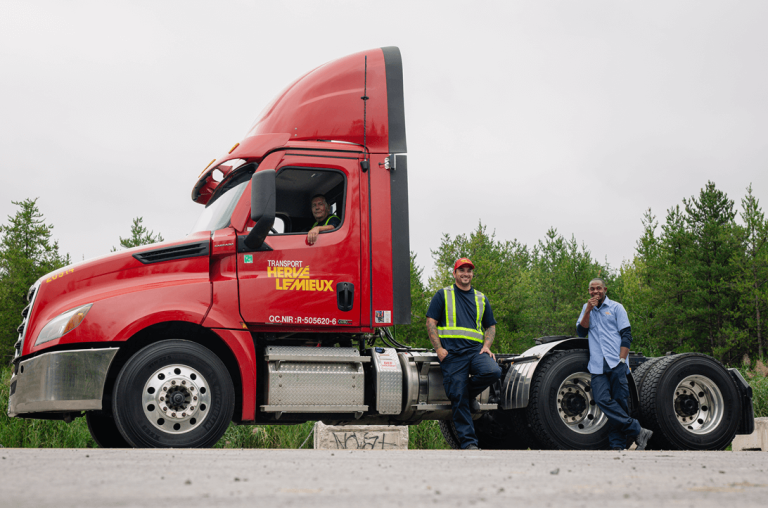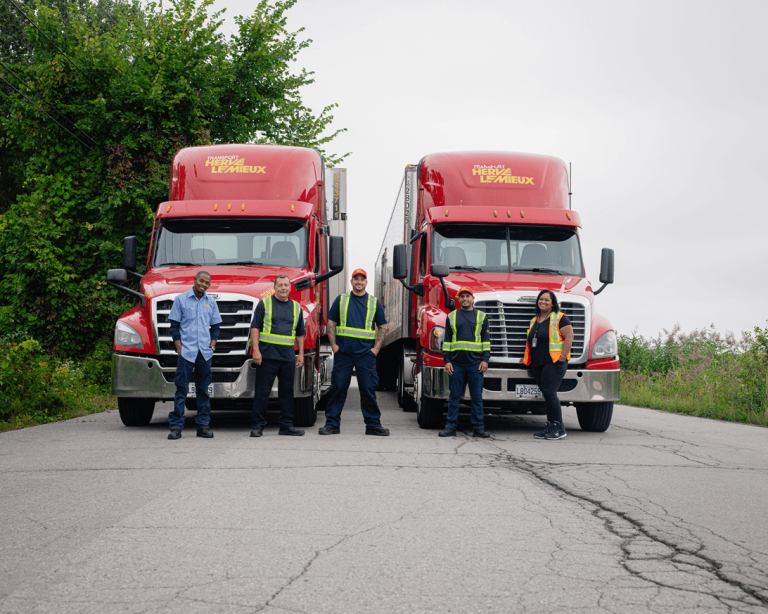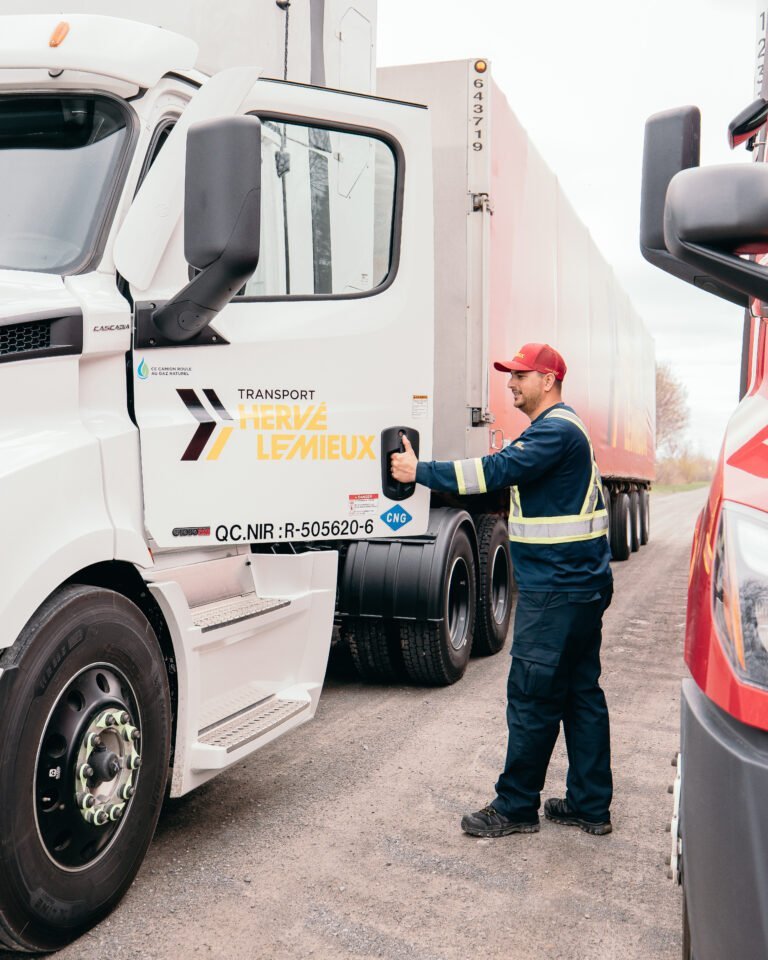The transport industry, a vital sector for the global economy, is currently facing a significant period of transformation. These changes, ranging from labor shortages to technological evolution, are having a major impact on transportation companies such as Transport Hervé Lemieux, a company that has adapted to the various changes in the industry since it was founded in 1947.
Labour shortages and training
The shortage of labor, particularly qualified drivers, is a major challenge for the transport industry. This situation is amplified by a growing demand for transportation services. In response, Transport Hervé Lemieux has set up training initiatives in collaboration with the Centre de formation en transport routier (CFTR), to develop a qualified workforce ready to meet the demands of modern transportation. By investing in the training and development of its employees, Transport Hervé Lemieux not only responds to the labour shortage, but also improves the quality and efficiency of its services.
Energy transition and zero emissions goal
The transition to cleaner energies is a crucial shift for the industry. Canada, with its ambitious zero-emission target, is pushing transport companies to adopt less polluting vehicles. Transport Hervé Lemieux is committed to this transition by exploring the options of electric vehicles and alternative fuels such as hydrogen, as part of a long-term vision of sustainability and operational efficiency. This transition is not only a response to environmental concerns, but also an opportunity to reduce long-term costs and improve efficiency.
Telemetry: an increasing necessity
Telemetry, an increasingly indispensable tool in the transport industry, enables more precise and efficient management of operations. At Transport Hervé Lemieux, telemetry is used for a wide range of purposes. These include optimizing routes, detecting mechanical breakdowns before they occur, tracking fuel consumption on each vehicle, improving fleet management, reducing costs and enhancing safety. This technology has become essential to remain competitive in a constantly evolving market.
Economic uncertainty and recession preparedness
The transport industry, like many other sectors, is susceptible to economic fluctuations. With forecasts of a possible recession in 2024, companies need to prepare for an uncertain economic environment. This means prudent financial management and quick adaptation to market changes to maintain stability and growth.
Lower interest rates and truck supply
The expected decrease in interest rates in 2024 could offer opportunities for transport companies, notably by facilitating the purchase of equipment. This is particularly beneficial for companies planning to renew or expand their fleets. At the same time, an improved supply of heavy-duty trucks, after years of difficulties, offers a positive outlook for the industry.
Adapting to market demands
In addition to the challenges mentioned above, the transport industry needs to adapt to changing market demands. This includes meeting customer expectations in terms of delivery times, flexibility and personalized services. With its experience and expertise, Transport Hervé Lemieux is able to respond effectively to these demands, offering transportation solutions tailored to the specific needs of each customer.
For Transport Hervé Lemieux, these changes represent an opportunity to reinforce its commitment to excellence, innovation and sustainability. By staying true to its core values and adapting to new market realities, Transport Hervé Lemieux is well positioned to continue offering quality transportation services, while contributing to a more sustainable future for the industry. The future of transportation is changing, and Transport Hervé Lemieux is ready to play a key role in this new environment.



